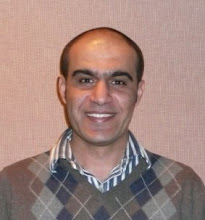Kurdistan Parliament is currently discussing the budget of 2010 for the Kurdistan Regional Government (KRG). The budget has been announced in a press conference by Dr. Berham Salih, the prime minister, before getting it to the representatives of the people. The budget was delayed for months before finalizing it and getting it to the parliament. Furthermore, the oil revenues of the region were not included in the budget and the opposition is furious about that.
The good news is, this is the first time in 19 years that the budget is openly discussed in the Parliament, some members of which, mainly from the opposition, had the courtesy of distributing it around and inviting professionals in particular and the public in general to provide comments, suggestions and input into the details of the budget openly. The government, through its administrative and judiciary branches, however, provided copies of the general provisions of the budget that was so vague that didn’t allow for any space for discussion.
The health budget that was included in the projects funded by the government and implemented by the Ministry of Health were devoid from any scientific analysis and calculations. The type of the projects and their geographic distribution seem to answer political worries rather than the real public health needs of the people.
This is clearly demonstrated in the amount of funds allocated to different geographical areas. In that regard, a disturbing inequality is evident in terms of the resources allocated to the governorates of Slemany, Erbil and Dohuk; (the three governorates officially under the jurisdiction of KRG). Hence, while Slemany governorate is the biggest in terms of population, the governorate comes in the third place after Erbil and Dohuk for the proportion of funds for Health projects in the governorate. The share of Slemany compared to the whole KRG region is 15.7% which is totally disproportionate to the population of the governorate.
This inequality in the resource allocation is not limited to the size of the governorates, but also applies to the rural-urban distribution. The 2010 health budget of KRG allocates a lion share to the urban areas of Kurdistan, while the rural areas are getting the minimum. The budget dedicates only 27% of the resources for health project to rural areas while urban areas are getting 73%. This is a outright miscalculation of the health priorities in the KRG. It is clearly evident that the rural areas that suffered from destruction, displacement and drainage of human, capital and infrastructure are in urgent need for greated attention in terms of resource allocation.
The 2010 budget of KRG ignore the systematic thinking of health policy development and implementation in general and resource allocation in particular. The natures of the projects that are funded in the budget are paying too much attention to building infrastructure while ignoring the other equally important components of the Health System in Kurdistan. In this regard, the budget is allocating more than 92% of the resources to building hospitals and health centers. The disturbing news is that about 22% of the whole budget allocated for projects in Erbil Governorate is dedicated to buildiing a new office for the Ministry of Health’s in Erbil City.
The budget contains no plans or provision to increase the numbers of the human resources serving in the health sector in Kurdistan. According to the human resources section of the budget, every 1000 citizen in Kurdistan will receive care from only 8 health care workers, who include physicians, nurses, paramedical staff, pharmacists, dentists, laboratory workers…etc. Furthermore, there are no plans to overcome the clear gender inequality in the health care workforce. The vast majority of Kurdistan healthcare workforce is consisting of males. Only 40% of the health care workers in Kurdistan according to the Budget are females.
The fragmented health care system of Kurdistan is in urgent need for Electronic Medical Records and some kind of health information technology in place. But the budget dedicated 0% of resources to this crucial component of the health care system which should take care of the production, analysis and usage of information in the system.
The budget doesn’t answer the question of how those health centers and hospitals that take 92% of the resource would be supplied with medical technology and other necessary supplies. The budget dedicates only 7.6% of the total resources to providing health supplies and medical technologies.
There are no provisions in the budget with regard to training and advancing the skills and capacities of health care leaders in Kurdistan. No clear planning are demonstrated through the resource allocation in the budget to how the whole system would be financed.
The health budget of KRG for 2010, confirms our previous diagnosis of the ways the health care system in Kurdistan is governed; politics rather than health policies are what running the system. And that is a prescription for disaster!
Saturday, February 6, 2010
Subscribe to:
Post Comments (Atom)












I think thats a nice idea...
ReplyDeleteThanks
Generic Levitra, Generic Viagra, Generic Cipro Online
f the recommended clarinex dosage is taken then it won’t make you feel drowsy and sleepy. In Clarinex there is an active ingredient named desloratadine. If you wish to know as to what is desloratadine then the answer is, it is a drug which is mainly used in treating the allergic reactions. But there are a few side effects too that are associated with clarinex medication and that are, nausea, fatigue and dry mouth. Many people who use clarinex 5mg complain about such mild side effects. clarinex medicine is also available in the dosage of 2.5mg. It is the doctor who decides as to which dosage tablets are apt for you. Clarinex is also available in the form of syrup and it i
ReplyDeletehttp://www.sundrugstore.com/clarinex-c-21_130.html
claritin 10 mg
ReplyDeleteI really appreciate your post and you explain each and every point very well.Thanks for sharing this information.And I’ll love to read your next post too.
ReplyDeleteDear Goran, I am in the process of proposing a health system to the KRG as an MSc project. would you kindly tell me if there has been any surveys carried out into the need of IS/IT to create a formal electronic health record?
ReplyDeleteNice review on that point you have shared with us, Thank you for taking a great point to people.
ReplyDeleteGreat and I have a swell provide: How Long Do House Renovations Take custom home renovations
ReplyDelete